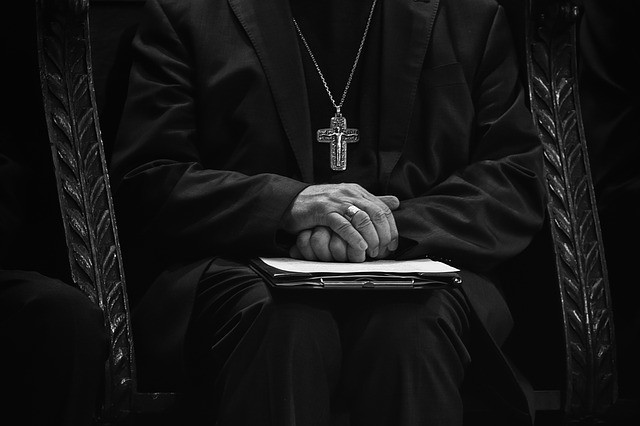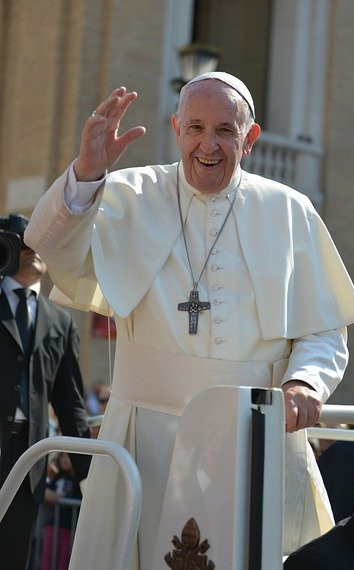
Hello beautiful Rosary Lovers! In this article we shall ask: What is the Catholic Catechism?
What is a Catechism?
The first thing we need to ask, however, is: what is a Catechism?
A Catechism is a document of Catholic teaching that has either been written by or endorsed by the Catholic hierarchy for use by the priesthood and the laity.
Let’s explore that a little.
- A document. A Catechism is a written rule of instruction about Catholic teaching. It is what the Church herself believes and what she herself endorses and wishes to make known to the world about what she believes.
- Written by or endorsed by the Hierarchy. Not all catechism have been written by the hierarchy, but they do have to be endorsed by the hierarchy for use by the Church. If they are not endorsed by the hierarchy, they are practically useless as authoritative systems of Catholic teaching.
- For use by the priesthood and laity. The Catechisms which have been written throughout history are not only to teach the priesthood, but also to teach all Catholics. Likewise, they are not only to teach the laity, but to instruct priests. It may come as a surprise that often throughout Catholic history priests have not known the faith very well, and sometimes haven’t even been able to read. Catechisms such as the Catechism of Trent are sometimes especially targetted to train and teach the priesthood, so they can have an official ‘one stop’ document to always refer to.
There is more than ONE Catholic Catechism!
By now you gather that there far more catechisms of Catholic teaching available than ONE Catholic Catechism!
The Catholic Church has used many catechisms throughout her history. Here are some examples.
- The Catechism of the Council of Trent. An absolutely exceptional catechism. Very concise, yet very thorough and precise. This was the main catechism of the Latin rite for 400 years, until the 1990s.
- ‘Christ our Pascha’. This is the current official catechism of the Ukrainian Greek Catholic Church (a large Eastern Catholic Church in full communion with the Pope).
- The Penny Catechism. A very short and famous catechism used by many Catholics in Britain.
- The Catechetical Lectures of St Cyril of Jerusalem. These are very old, dating from the 4th century. St Cyril was a Bishop who in these lectures expounds the Catholic faith in the spirit of the early Church fathers.
- The Catechism of Pope Pius X. A short, simple, authoritative catechism written by the Pope himself in the early 1900s.
It goes without saying that all of these are worthy of exploration and study.
Life however is often too short, and many of us live such busy lives that it would be useful to go to one Catechism, wouldn’t it?
The main Catechism of the Latin Rite currently is this one …
Thankfully, the Catholic Church has provided a very modern Catechism which has become something of a major standard in the Catholic world. It is called ‘Catechism of the Catholic Church‘.
This is what most people are referring to when they speak of ‘the Catholic Catechism’.
However, it is worth pointing out that this particular Catechism doesn’t really promote itself as ‘the be all and end all’. In the opening pages, St John Paul II clarifies that this catechism is ‘a catechism’ and is not designed in anyway to replace the other catechisms which exist in the Catholic Church.
So, the place of this Catechism is a little confusing. Is it a catechism only for the Latin rite? What about the other 23 rites of the Catholic Church?
As we have seen, the Ukrainian Catholic Church has her own modern Catechism, which is newer than the ‘Catechism of the Catholic Church’.
But then, why is this catechism called ‘Catechism of the Catholic Church’?
Frankly, there are many Catholics who treat this catechism as the major modern authority on the Catholic faith, ‘the one ring to rule them all’ (to quote Lord of the Rings).
Other Catholics see it as a very useful and authoritative catechism, but to be used alongside the others that exist in the Church.
And still other Catholics feel free to use other Catholic catechisms and to bypass this one, for whatever reason. This is acceptable.
What is this Catechism?
The ‘Catechism of the Catholic Church’ is a superb modern teaching document.
It was written in the 1990s and overseen by Cardinal Joseph Ratzinger (later Pope Benedict XVI).
It was approved by Pope John Paul II (who many believe to be the greatest Pope of recent times, possibly one of the greatest Popes ever).
It is a hefty volume of around 600 pages.
It is split up into four huge sections:
- Profession of Faith, which expounds the Nicene Creed
- The Sacraments, which expounds the Church’s 7 Sacraments
- Life in Christ, which mainly expounds the Ten Commandments in light of Christ and his Holy Spirit
- Prayer, which mainly expounds the Lord’s Prayer as the supreme prayer of Christianity
Just looking at this outline, it’s clear that the following are hugely emphasised by the Church:
- The Nicene Creed
- The Sacraments: Baptism, Confirmation, Confession, Eucharist, Marriage, Orders, Healing
- The Ten Commandments
- The Lord’s Prayer
As St Augustine said, ‘You have the Creed and the Lord’s prayer. What more do you need?’
This Catechism is very readable, whilst being very thorough. Not a word is wasted and everything is there for a reason.
This Catechism is possibly due for an update
Things have moved on a LOT since the 1990s, when this Catechism was released. The Church now has new things to think through, for instance:
- Transgenderism. The Catechism doesn’t seem to focus on this issue anywhere in any detail. This is such a huge issue now that it presumably demands a response from the Church ‘set in stone’ in an update of this catechism.
- Ecological issues. Pope Francis ministry has focused a great deal on creation and ecology. ‘Mother Earth’ as he affectionately refers to her. The Catechism does speak about these issues a little, but Pope Francis has definitely developed the Church’s beliefs here.
- Capital punishment. Pope Francis has also sought to develop the Church’s beliefs on whether it is ever right for a state of execute a human being. The Pope seems to now reject capital punishment as an option for the future.
- Just war? In light of the recent war between Russia and Ukraine, Pope Francis has responded by decrying war in general. He even seems to now turn away from the traditional Catholic idea of a ‘just war’. He seems to believe that all war is never justified.
- What else?
Perhaps you can add to this list in the comments below. God bless you!
